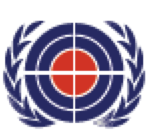Africa matters, especially for American policy priorities. The rights and well-being of Africans across the continent have a direct impact on peace and prosperity around the world and can curb mass migration, bolster security and resilience, and promote trade and economic growth. The U.S. has a long history of effective engagement across Africa and should designate the continent as a foreign policy priority.
Recommendation:
Public and private sector institutions should prioritize collaboration with African leaders, communities, and civil society organizations that are working to advance good governance, accountability, and the meaningful participation of all Africans in democracy.
Governance and Accountability: Reprioritizing U.S. Partnership in Africa
- A high-profile platform, the U.S.-Africa Leaders Summit promotes mutually beneficial opportunities to advance good governance, development, and stability.

- U.S. investments have directly engaged governments, regional bodies, and civil society organizations to enhance democracy, election integrity, and accountability mechanisms across the African continent. Examples include the African Democratic and Political Transitions (ADAPT) initiative, the African Democracy Fund, and Defending Democratic Elections Fund.
-
Setting a new standard for accountability-focused investments, the Millennium Challenge Corporation has incentivized dozens of governments in Africa and around the world to strengthen institutions and advance policy reforms focused on governance, human rights, health, and well-being. This, in turn, enhances security, trade, and investment opportunities.
Governance and Accountability: Countering Russia and China in Africa
Russia and China are actively spreading their authoritarian influence across the African continent — to the detriment of regional and global stability, peace, and prosperity. These adversaries are filling a void left from the lack of American engagement over the past decade to advance their interests at the expense of U.S. national security.
Russia
- Pro-Russian actors have used a combination of misinformation, electoral interference, and security agreements to influence political elections throughout the continent.
- Between 2005 to 2024, Russian private military companies carried out 34 operations in 16 African countries, weakened political institutions, and built anti-Western sentiment.
- In 2019 and 2023, Russia hosted the Russia-Africa Summit with the main goal of strengthening diplomatic, cultural, and economic relations on the continent. In 2023, 49 delegations across Africa attended the meeting, including 17 heads of state.

- In countries like Burkina Faso, Russia has supported authoritarian figures to upend laws, abolish term limits, and advance extraconstitutional claims to power.
- Russia’s foreign military intelligence agency offers African elites access to military assistance and equipment and support at multilateral institutions, in exchange for partnerships and acquisition of critical resources.

- Russia continues to court African nations to win influence at the United Nations. By targeting African member states, Russia has been able to build leverage in votes that support Moscow’s interests.
- Alongside a new Africa partnerships department, Russia’s Foreign Ministry plans to add at least seven new embassies to its regional footprint by 2026 (Gambia, Liberia, the Comoros, Niger, Sierra Leone, Togo, and South Sudan).
China 
- Modeled after the Chinese Communist Party (CCP) Central Party School, China has established similar training schools across the continent to engage leaders and other political influencers with an emphasis on CCP supremacy.
- China has cultivated relationships with 35 African parliaments and more than 110 political parties in 51 African countries via their National People’s Congress and the CCP’s International Liason Department.
- China regularly uses the Forum on China-Africa Cooperation (FOCAC) to advance bilateral partnerships and multilateral influence. This includes courting the support of African countries at the U.N., a key goal of the 2025-2027 FOCAC Action Plan.
- In 2020, China committed to 50,000 training opportunities for African officials, journalists, opinion leaders, and technocrats.

- China’s International Liaison Department regularly hosts convenings, study tours, and training sessions for African leaders and political parties on strategic themes like governance, civil-military relations, and poverty.
- With more than 60 embassies and consulates throughout the region, China maintains the world’s largest diplomatic network in Africa.
BRICS
- Russia and China actively utilize the BRICS platform to engage African countries. Egypt, Ethiopia, and South Africa are current members, while partner states have expanded to include Nigeria and Uganda.








